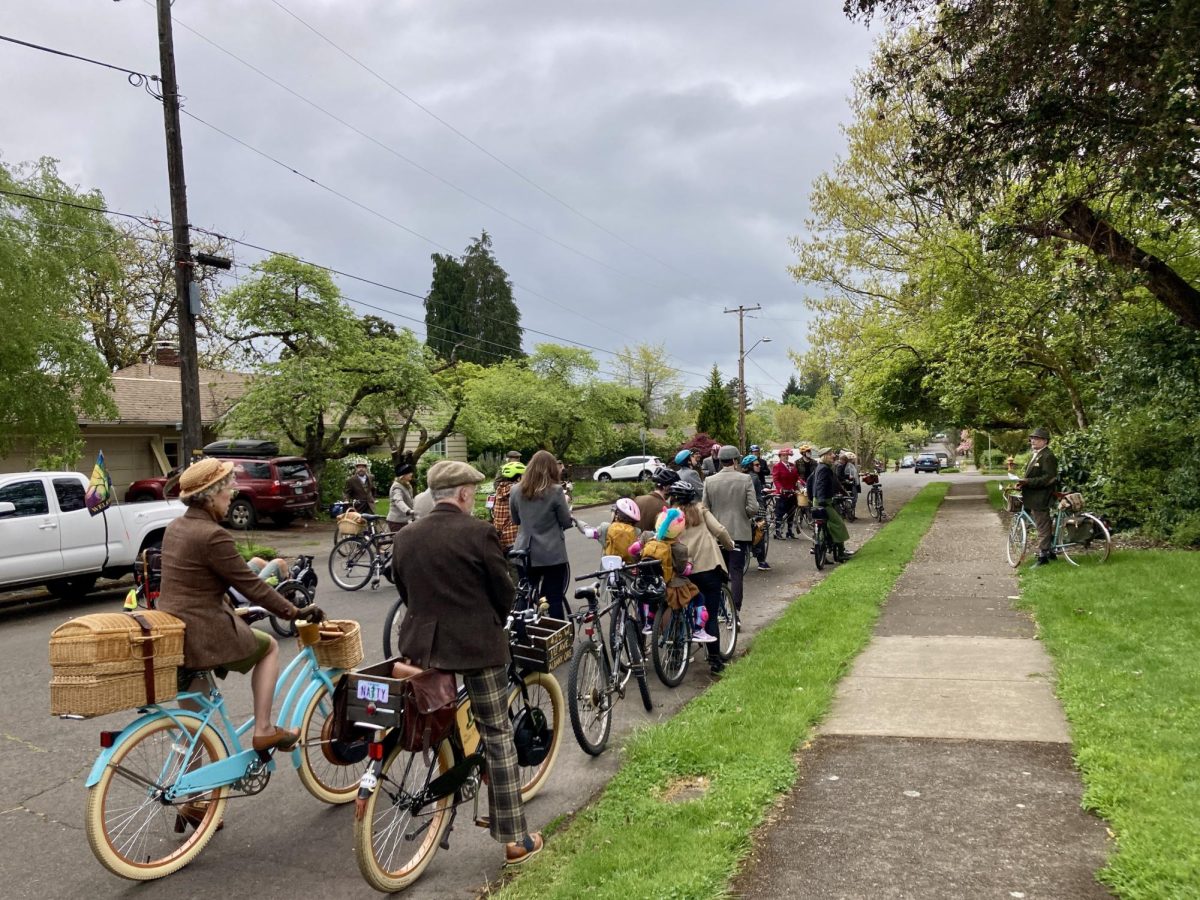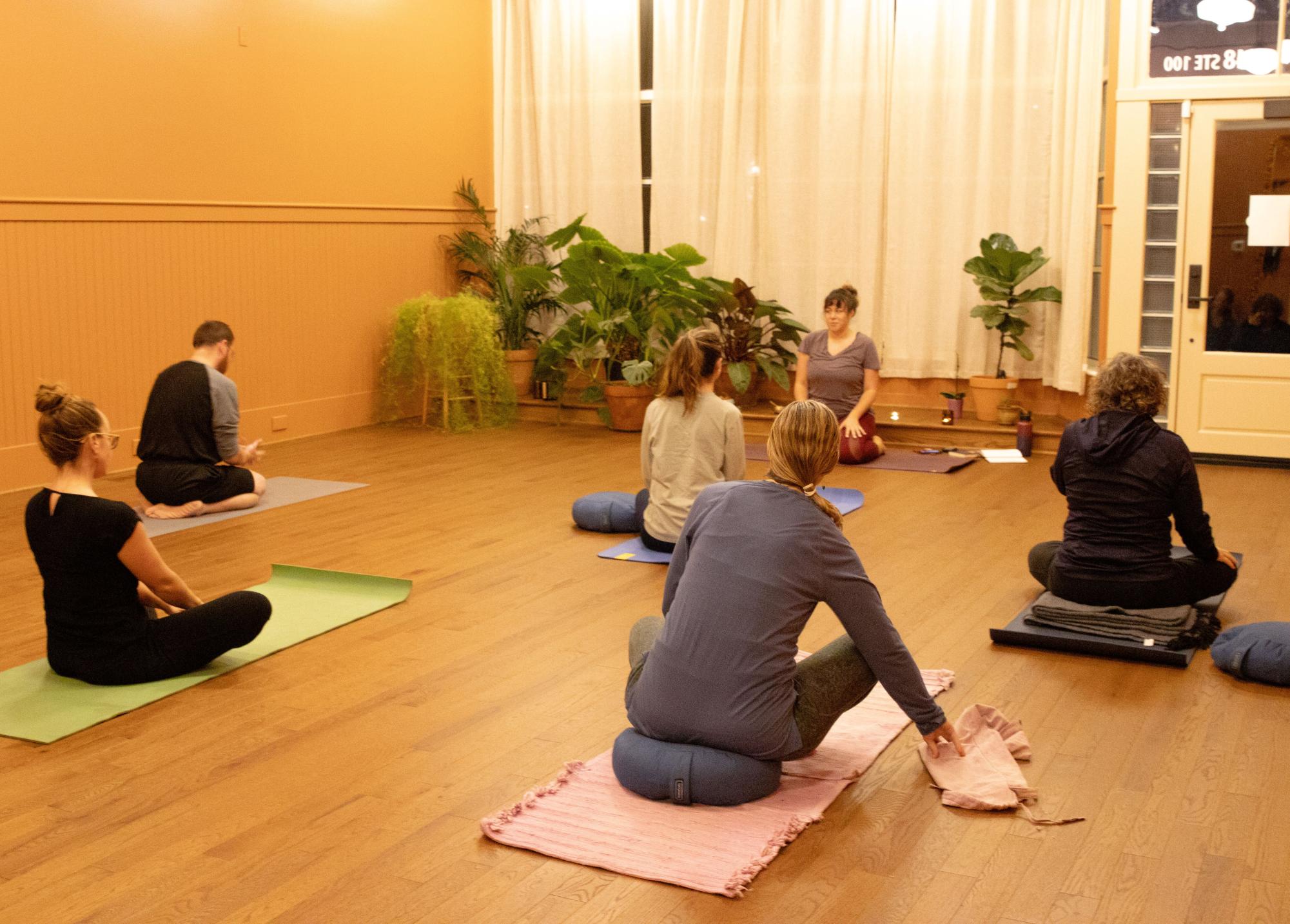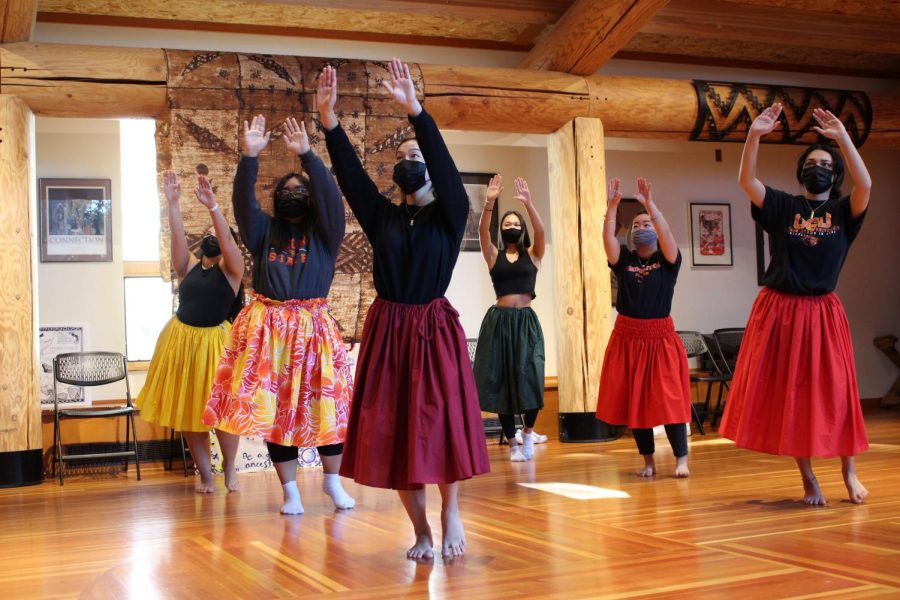Spiritual for some, secular for others, welcoming to all.
These are the sentiments of contemplative studies coordinator at Oregon State University Kate Gallagher on who contemplative practices are for and how they are categorized.
Contemplative practices can be described by a variety of practices from yoga to meditation, to prayer to dance and beyond. No matter what form they take however, at the center are the principles of awareness, community and connection.
Personally, Gallegher believes that through regular practice, contemplative traditions give people the opportunity to better understand themselves in their mind, body and spirit.
“It allows us to relate to our lives with more equanimity, which means that we’re not as thrown off track by the ups and downs of life,” Gallagher said. “We get to be a little more steady, a little more balanced and relate to the events in our lives.”
While this benefit of balance is just one of many valuable attributes someone could gather from engaging in regular contemplative practice, these benefits can be categorized as contributing to one’s physical, mental and spiritual health.
“Spiritual health is a component of overall well-being. Just like our social, physical or emotional health, our spiritual health needs attention and nourishment,“ said Danielle Caldwell, the fitness and wellness coordinator at Dixon Recreation Center. “Spiritual health is about connecting with something that is bigger than oneself and creating meaning and purpose in your life.”
Yoga, a popular contemplative practice within the United States is known for contributing to all aspects of health but other contemplative practices such as mindfulness and meditation have seen positive effects on physical health through chronic stress reduction.
“With the reduction of stress, we see improvement in things like depression and anxiety, and then we also see improvements in physical health conditions that are impacted by stress,” Gallagher said.
According to the American Psychological Association, research has shown that mindfulness has proven to influence pathways in the brain in areas related to attention and emotional regulation.
Gallagher’s suspicion is that these practices – in any form but most proven with mindfulness – are that they allow us to form deeper connections within ourselves and with others, creating a sense of awe for life surrounding us.
“What greater value or gift than to be amazed at your life,” Gallagher said.
The contemplative studies program at OSU has been teaching classes for over 10 years in both studying why people engage in these practices and the practices themselves, but not just from reading and attending lectures. From actually practicing them.
Gallagher says many of these practices and traditions need to be engaged in and reflected on in order to be understood, known as the critical first-person experiential lens.
The program has been renting space in community buildings, churches and classrooms in order to teach and practice, until now.
“We wanted a dedicated space where we didn’t have to like, you know, haul a bunch of meditation cushions in and haul them out, which we’ve done a lot of over the years,” Gallagher said.
So when the historic Pepsi building in downtown Corvallis was put up for sale, a space with wood floors, tall ceilings and large east facing windows, the department took the opportunity to have a space of their own.
On Sept. 20, the Marigold center (named – in some cultures – for the sacred flower that like many contemplative practices, is not native to Oregon but has taken root here) opened its doors.
This space has served as a home for contemplative classes such as yoga, meditation, Tibetan Buddhism sādhanā practice, contemplative dance and more.
“The unifying factor is this sense of introspection and contemplation,”said Geoff Barstow, associate professor in religious studies and instructor of the Tibetan Buddhism sādhanā practice class.
According to Gallagher the classes have seen success in filling space and engaging people in the community but they hope to connect more with undergraduate students. One way they hope to do so is through removing or reducing the financial barrier that attending classes might cause through scholarships.
“We have funds and resources right now for undergraduates, and we want to share the space and share the practice with them,” Gallager said.
Gallagher says the application is a very short form that would then give a student a five class pass that if used, could be extended to eight or 10 more.
“We all have a personal contemplative journey that we might be on and having a community that supports that is really helpful for staying close to ourselves and close to our personal journey,” Gallager said.




















































































































